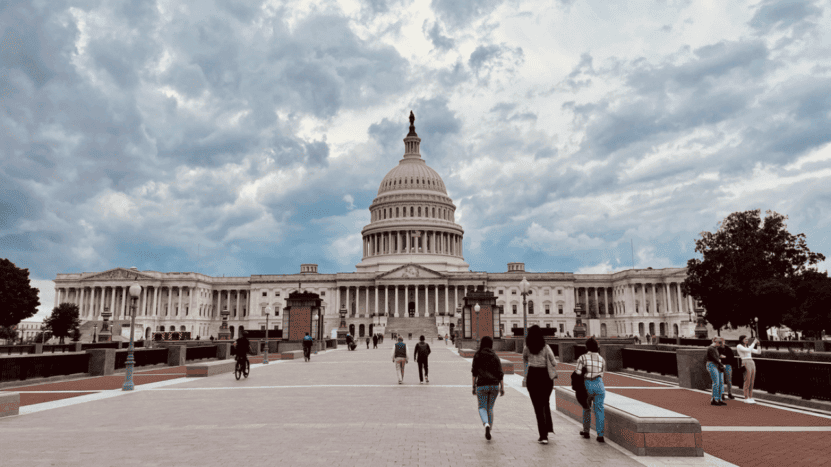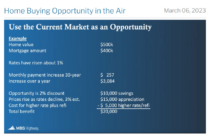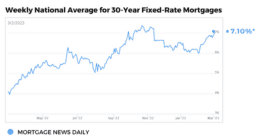It looks like we averted another government shutdown at the 11th hour over the weekend. It would have been my 6th shutdown too since I started in the mortgage industry in 1994.
Here is when previous shutdowns occurred: November of 1995; 1995-1996; 2013; January of 2018; and, my personal favorite: December 2018— January 2019 – which lasted for 34 days.
While shutdowns do impact people within the government, they do not actually impact the rest of us that much. The media like to make a big deal of out shutdowns because their biggest impact is often making one of the political parties look worse in the eyes of voters, and thus impacting elections. Several previous shutdowns were costly for Republicans for example, as voters largely blamed them.
The shutdown that everyone expected to start yesterday was simply postponed for 45 days with a temporary spending measure – so we may still see a shutdown this year after all.
According to Twitter (a reliable source if there ever was one), if a shutdown takes place: 1.3 million active duty service members have to work without pay; “non-essential” government workers go on unpaid leave (but they get back pay when they come back); some infrastructure construction gets put on hold; shutdowns can cost the economy $1 billion per day (I’m skeptical); flight delays will be more common due to TSA worker shortages; and many national parks will close (but they don’t have to; this too is often to make voters more angry about the shutdown).
BUT – our illustrious congresspeople will continue to get paid as usual during a shutdown, which says it all.
Also interesting is that the stock market often performs well during shutdowns – which says much about investor confidence in our government.
SO – do those of us in the mortgage and real estate industries need to worry about shutdowns? Not really…
FHA and VA Loans
FHA and VA loan processing requires a functioning government, but this aspect of the government largely continues to function during shutdowns.
IRS Form 4506-Ts (Verification Of Tax Transcripts)
Lenders need these forms from the IRS to close almost every full-doc mortgage, and we were not able to get them in a timely manner with previous shutdowns. But – the system is more automated now and it appears that the government has figured out how to keep this process in place during the shutdowns.
Flood Insurance
If a property is in a flood zone and in need of flood insurance through the National Flood Insurance Program, the closing could be delayed if there is a shutdown, pending the re-opening of our government. An alternative would be to try to find a private insurance alternative.
Verifications of Employment (VOEs) – For Federal Employees
Formal VOEs are required for most mortgages too, so this could be a problem as well if a borrower is a federal employee who is impacted by the shutdown – but this will be a case-by-case situation (with us at least). In addition, we may have trouble obtaining VOEs for Federal employees in general, but I was just told by one of our Senior Closing Specialists that there will likely be workarounds now.
Verifying Outstanding Debts Owed to the Federal Government
Lenders also often have to verify that no outstanding debts are owed to the federal government, and that process could be impacted but not likely, as much of the process is now automated as well. These debts, in case you’re wondering, include defaulted student, FHA, VA, USDA, and SBA loans, as well as unpaid fines, penalties, taxes, and even child support.
Fannie Mae and Freddie Mac
Fannie Mae and Freddie Mac pretend to not be government, so they will never want to blow their cover by shutting down (so they won’t).
How Do Government Shutdowns Impact Interest Rates?
I read a quote by a Guaranteed Rate exec where he said that he thinks rates will go up if there is a government shutdown because it adds another layer of risk. But that makes no sense to me. I think it is more likely that rates will come down a bit, if the shutdown is perceived to have the potential to damage the economy – as investors will want to move to the safety of bonds (which pushes rates down).
I just checked historical rates too, and rates moved down in general during the last government shutdown – but there were other factors pushing rates down too. In addition, rates generally moved up during the shutdown prior to the most recent one.
So, it would appear that rates can move in either direction, as there are larger forces at play when it comes to rates. The exception would be if an overreaction to a shutdown triggers some other type of crisis, like a stock market correction. If that happens, rates will come down.
CONCLUSION: MOST MORTGAGES WILL STILL CLOSE ON TIME IF THERE IS A GOVERNMENT SHUTDOWN, BUT THERE COULD BE SOME DELAYS.
Sign up to receive our blog daily
























